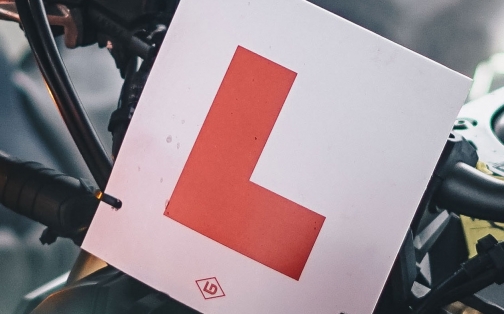
- Home
- News
- Young Drivers
- First Time Insurance for Young Drivers

First Time Insurance for Young Drivers
For many young people, progressing from learner to fully fledged driver will be high on their list of resolutions for 2016. But with the average young driver’s annual insurance premium currently standing at £1,327, where does that leave new and young drivers? We’ve put some tips and advice together to answer some common questions for those of you who are learning to drive or are newly qualified.
How can I find the best deal?
Purchasing your first car insurance policy can be a daunting experience, especially with young and new driver premiums on the increase. A great way to start is to compare car insurance quotes using a price comparison site. The sites allow you to compare hundreds of insurance providers at once, collating your results to easily determine which option is going to be cheapest for you.
There are also some companies who specialise in providing car insurance specifically for younger drivers. Some companies, such as Insure the Box, offer options called Telematics Insurance (also known as pay as you drive or black box insurance) to help keep premiums low for new drivers. A little black box is installed in the vehicle to monitor the driver’s habits and behaviours behind the wheel. The data is recorded and transmitted back to the insurer so they can adequately identify how much of a risk you are to them. When searching using a price comparison site, check the box to include telematics insurance to include quotes from companies offering these services.
Which level of cover do I need?
There are three levels of cover in the UK, fully comprehensive, third party fire and theft and third party only. Fully comprehensive cover will fully cover you for an at-fault or non-fault accident and fire and theft of the vehicle. In the event of an accident, third party only will only provide cover to the third party involved, regardless of fault. This means you will not be able to recover damage costs to your car and you will not be covered for fire or theft – so you should think very carefully before choosing this option. Third party fire and theft is pretty self-explanatory. The level of desired cover is up to the individual, but it’s usually determined based on the value and age of the car. If your car is worth £10,000, you should choose a fully comprehensive cover to make sure you can claim for your own vehicle should you be involved in an accident.
Is third party insurance cheaper than fully comprehensive?
While it seems logical for third party only to be the cheapest, as it offers the least level of cover, this is not always the case. Insurance quotes are all about measuring risk. Risk patterns have shown that people who are more likely to claim on their insurance tend to opt for third party only cover. This pattern has resulted in insurers significantly driving up the cost of third party cover. Third party only policies can be as much as double the price of a fully comprehensive policy, with third party fire and theft averaging 50 per cent more.
Should I make my mum or dad the policyholder to save money?
Absolutely not. This type of trick to keep insurance premiums down is known as ‘fronting’, and by pretending somebody else is the main driver who is not, is, in fact, a fraudulent offence. Should you find yourself in an accident, your insurance would most likely be invalid and you could face a criminal conviction. Always be upfront about who owns the car and who the main driver is.
Not only this but in most cases you wouldn’t be able to build up your no-claims bonus if you aren’t the policy holder, which means your insurance probably wouldn’t decrease in price after your first year of driving. While a couple of companies do allow you to build a no claims bonus as a named driver, they will often only honour it if you stay with them for your renewal.
You can, however, add an older driver as a second ‘occasional’ driver, as this could potentially reduce your premium. As mentioned before, car insurance is all about measuring risk, so by having a more experienced driver on your policy, you’re slightly reducing the overall risk of having an accident.
How truthful do I have to be with the details I disclose?
You should always be completely honest when purchasing car insurance, as inaccurate details can ultimately invalidate your policy leaving you with no cover in the event of an accident. However, things like average annual mileage will contribute to the overall price of the policy, so you should try to be as accurate as possible here. Don’t just guess at 10,000 when you only really do 5,000 as you could end up paying for cover you don’t need.
Will I get a better deal if I increase my excess?
On the most part, yes. Insurance premiums with higher excesses are often cheaper. With this in mind, it’s important to identify whether you’re able to afford the excess should you find yourself in an accident.
If you’re involved in a non-fault accident, accident management companies such as Winns can handle your claim on behalf on your insurer, and you don’t have to pay an excess if you call them before your insurer.
Share this article
Request a Callback
Had an accident that wasn’t your fault? Leave your details and we’ll call you back.
Thank you
Thank you for your request, one of our team members will be in touch shortly.
Find Out MoreExisting Client?
Keep on top of your claim 24/7, 365 days a year with Touchpoint, accessible from any internet-enabled device.



